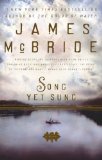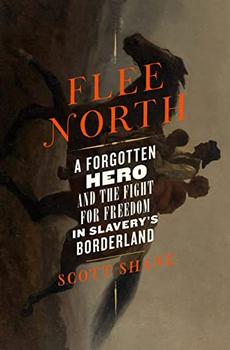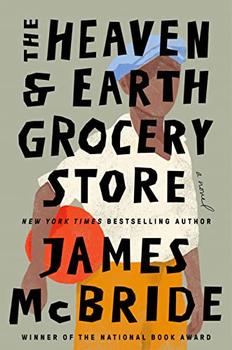Summary | Excerpt | Reading Guide | Reviews | Beyond the book | Read-Alikes | Genres & Themes | Author Bio

Critics' Opinion:
Readers' Opinion:
First Published:
Feb 2008, 368 pages
Paperback:
Jan 2009, 384 pages
 Book Reviewed by:
Book Reviewed by:
Lucia Silva
Buy This Book
From the New York Times-bestselling author of The Color of Water comes a powerful page-turner about a runaway slave and a determined slave catcher.
Nowhere has the drama of American slavery played itself out with more tension than in the dripping swamps of Maryland's eastern shore, where abolitionists such as Frederick Douglass and Harriet Tubman, born less than thirty miles apart, faced off against nefarious slave traders in a catch-me-if-you-can game that fueled fear and brought economic hardship to both white and black families. Trapped in the middle were the watermen, a group of America's most original and colorful pioneers, poor oystermen who often found themselves caught between the needs of rich plantation owners and the roaring Chesapeake, which often claimed their lives.
The powerful web of relationships in a small Chesapeake Bay town collapses as two souls face off in a gripping page-turner. Liz Spocott, a young runaway who has odd dreams about the future of the colored race, mistakenly inspires a breakout from the prison attic of a notorious slave thief named Patty Cannon. As Cannon stokes revenge, Liz flees into the nefarious world of the underground railroad with its double meanings and unspoken clues to freedom known to the slaves of Dorchester County as "The Code." Denwood Long, a troubled slave catcher and eastern shore waterman, is coaxed out of retirement to break "The Code" and track down Liz.
Filled with rich history-much of the story is drawn from historical events-and told in McBride's signature lyrical storytelling style, Song Yet Sung brings into full view a world long misunderstood in American fiction: how slavery worked, and the haunting, moral choices that lived beneath the surface, pressing both whites and blacks to search for relief in a world where both seemed to lose their moral compass. This is a story of tragic triumph, violent decisions, and unexpected kindness.
Excerpt
Song Yet Sung
On a grey morning in March 1850, a colored slave named Liz Spocott dreamed of the future. And it was not pleasant.
She dreamed of Negroes driving horseless carriages on shiny rubber wheels with music booming throughout, and fat black children who smoked odd-smelling cigars and walked around with pistols in their pockets and murder in their eyes. She dreamed of Negro women appearing as flickering images in powerfully lighted boxes that could be seen in sitting rooms far distant, and colored men dressed in garish costumes like children, playing odd sporting games and bragging like drunkards—every bit of pride, decency, and morality squeezed clean out of them.
Liz had this dream in captivity, just as the flickering light of her own life was disappearing, and when she awoke from it realized with a gasp that it was some kind of apparition and she had to find its true meaning in this world before she died. This brought her more grief...
I found Song Yet Sung such a good, old-fashioned read - dramatic plot, broad characters, redemptive themes - that I wanted it to be perfect. Unfortunately, it suffers from a few facile conclusions and implausible resolutions, and the central dream motif becomes heavy-handed as the novel progresses. Still, so engaging are its many merits that choosing to forgive its minor flaws offers the possibility of an up-all-night read that runs much deeper than the usual fare...continued
Full Review
(292 words)
This review is available to non-members for a limited time. For full access,
become a member today.
(Reviewed by Lucia Silva).
Quilts hung out in a rainstorm, barrels stacked in careful sequence, boats tied to the dock with five knots facing one direction, songs of freedom and warning, a blacksmith's hammer ringing out in an undetectable sequence; all are evidence of the secret codes of the Underground Railroad: cryptic communications used to facilitate the safe passage of escaped slaves. The Code is central to Song Yet Sung, it's the mysterious, rhythmic backbone of the story, as much a mystery to the main character as it is to the reader. Much of the Code consisted of seemingly innocuous words or phrases that held greater meaning, e.g.: "The wind blows from the south today" warned that slave hunters were nearby. As with many oral histories, legend...
This "beyond the book" feature is available to non-members for a limited time. Join today for full access.

If you liked Song Yet Sung, try these:

by Scott Shane
Published 2024
A riveting account of the extraordinary abolitionist, liberator, and writer Thomas Smallwood, who bought his own freedom, led hundreds out of slavery, and named the underground railroad, from Pulitzer Prize-winning author and journalist, Scott Shane. Flee North tells the story for the first time of an American hero all but lost to history.

The Heaven & Earth Grocery Store
by James McBride
Published 2023
From James McBride, author of the bestselling Oprah's Book Club pick Deacon King Kong and the National Book Award–winning The Good Lord Bird, a novel about small-town secrets and the people who keep them.





The Flower Sisters
by Michelle Collins Anderson
From the new Fannie Flagg of the Ozarks, a richly-woven story of family, forgiveness, and reinvention.

The House on Biscayne Bay
by Chanel Cleeton
As death stalks a gothic mansion in Miami, the lives of two women intertwine as the past and present collide.

The Funeral Cryer by Wenyan Lu
Debut novelist Wenyan Lu brings us this witty yet profound story about one woman's midlife reawakening in contemporary rural China.
Your guide toexceptional books
BookBrowse seeks out and recommends the best in contemporary fiction and nonfiction—books that not only engage and entertain but also deepen our understanding of ourselves and the world around us.